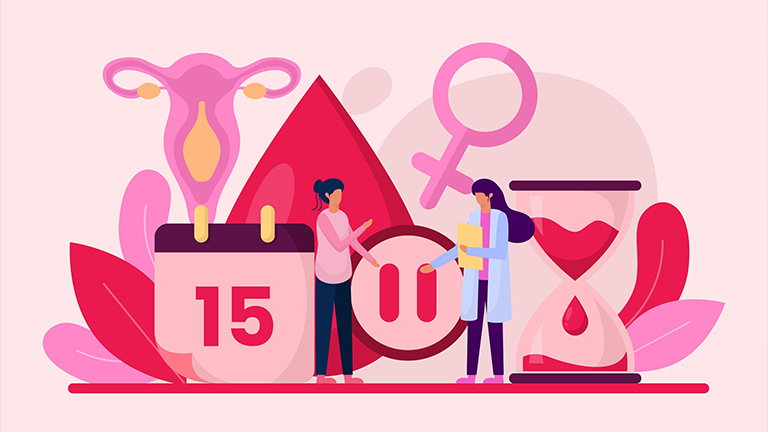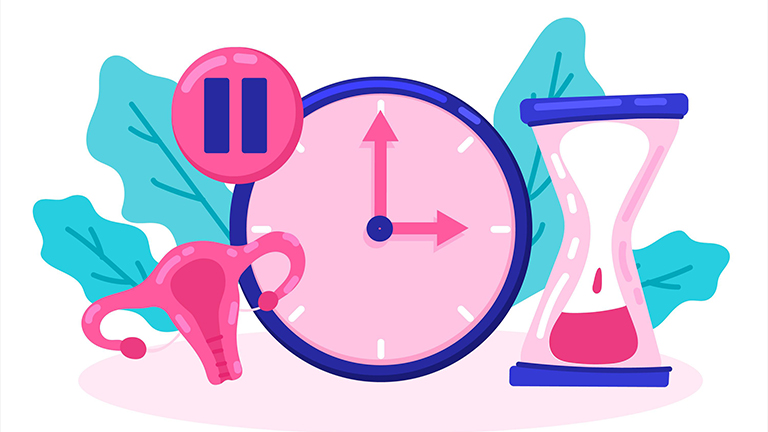Many women start noticing subtle physical and emotional changes in their late 30s or early 40s. These changes may be early signs of perimenopause, the natural transition leading up to menopause. Understanding the symptoms of early perimenopause can help women manage their health, reduce anxiety, and make informed decisions about lifestyle or medical care.
This article explores the early stages of perimenopause, its common symptoms, risk factors, diagnosis, and practical strategies for relief.
What is Early Perimenopause?
Early perimenopause refers to the initial phase of the menopausal transition when estrogen and progesterone levels begin to fluctuate. Unlike menopause, where menstrual periods stop completely, perimenopause is a gradual process marked by irregular cycles and changing hormonal activity.
Understanding Early Perimenopause
During perimenopause, ovarian function slows down, leading to unpredictable ovulation. This hormonal imbalance causes physical and emotional symptoms, ranging from irregular periods to hot flashes and mood swings.
When Does Perimenopause Start?
The perimenopause age range typically begins between ages 40–44, but some women experience early perimenopause as soon as their late 30s. Genetics, lifestyle, and medical conditions can influence the timing.
Causes and Risk Factors of Early Perimenopause
Several factors may trigger an earlier onset of perimenopause, including:
- Family history of early menopause
- Smoking and unhealthy lifestyle habits
- Autoimmune conditions
- Pelvic surgery or hysterectomy
- Chronic stress or health conditions affecting hormone balance
Symptoms of Early Perimenopause
The signs of early perimenopause can vary for every woman, but the following are the most common:
Irregular Menstrual Cycles
One of the first symptoms is irregular periods. Cycles may become shorter, longer, heavier, or lighter than usual.
Hot Flashes and Night Sweats
Sudden warmth, flushing, and sweating—especially at night—are hallmark early perimenopause symptoms caused by fluctuating estrogen.
Sleep Disturbances and Fatigue
Hormonal changes can lead to insomnia, restless sleep, and daytime fatigue, making it harder to maintain energy levels.
Mood Changes and Irritability
Many women report mood swings, irritability, and difficulty concentrating due to hormonal fluctuations.
Anxiety and Depression Symptoms
Increased anxiety during early perimenopause and feelings of sadness or low mood may arise. This is partly linked to lower estrogen’s effect on brain chemistry.
Vaginal Dryness and Low Libido
Declining estrogen may cause vaginal dryness, discomfort during intercourse, and reduced sexual desire.
Physical Changes (Weight Gain, Hair, Skin)
Some women experience weight gain, particularly around the abdomen, along with thinning hair, dry skin, and loss of muscle tone.
Health Effects of Early Perimenopause
Beyond uncomfortable symptoms, early perimenopause may raise health concerns such as bone density loss, increased risk of heart disease, and changes in metabolism.
Hormonal Imbalance and Its Impact
Shifting hormone levels in perimenopause affect not only reproductive health but also sleep cycles, emotional wellbeing, and long-term cardiovascular and bone health.
Fertility Concerns in Early Perimenopause
Although fertility declines, pregnancy is still possible during early perimenopause. Women trying to conceive may face challenges, but assisted reproductive technologies may help.
Diagnosis & Treatment
How Is Early Perimenopause Diagnosed?
Doctors may use:
- Medical history and symptom review
- Hormone level testing (FSH, estrogen, thyroid)
- Menstrual cycle tracking
Medical Treatments for Symptom Relief
Treatment may include:
- Hormone Replacement Therapy (HRT)
- Low-dose birth control pills
- Antidepressants for mood regulation
- Vaginal estrogen creams
Natural Remedies and Lifestyle Changes
For women seeking alternatives, natural remedies for perimenopause include:
- Herbal supplements (black cohosh, red clover)
- Omega-3 fatty acids
- Acupuncture for hot flashes
Coping with Perimenopause
Diet and Exercise Tips
- Eat a balanced diet rich in calcium, vitamin D, and whole grains
- Avoid excessive caffeine, alcohol, and processed foods
- Incorporate strength training and cardio to manage weight
Stress Management and Sleep Support
- Practice mindfulness, yoga, and meditation
- Maintain a consistent sleep schedule
- Try relaxation techniques before bed
Conclusion
The symptoms of early perimenopause can be overwhelming, but understanding the changes helps women take proactive steps. From medical treatments to natural remedies and lifestyle support, relief is possible.
When to See a Doctor
Seek medical advice if:
- Menstrual cycles stop suddenly before age 40
- Symptoms interfere with daily life
- There are concerns about fertility, bone health, or mood changes
Living a Healthy Life During Perimenopause
Early perimenopause is a natural stage of life, not a medical failure. With the right diet, exercise, stress management, and medical support, women in the USA, UK, and Canada can navigate this transition while maintaining vitality, health, and emotional balance.


